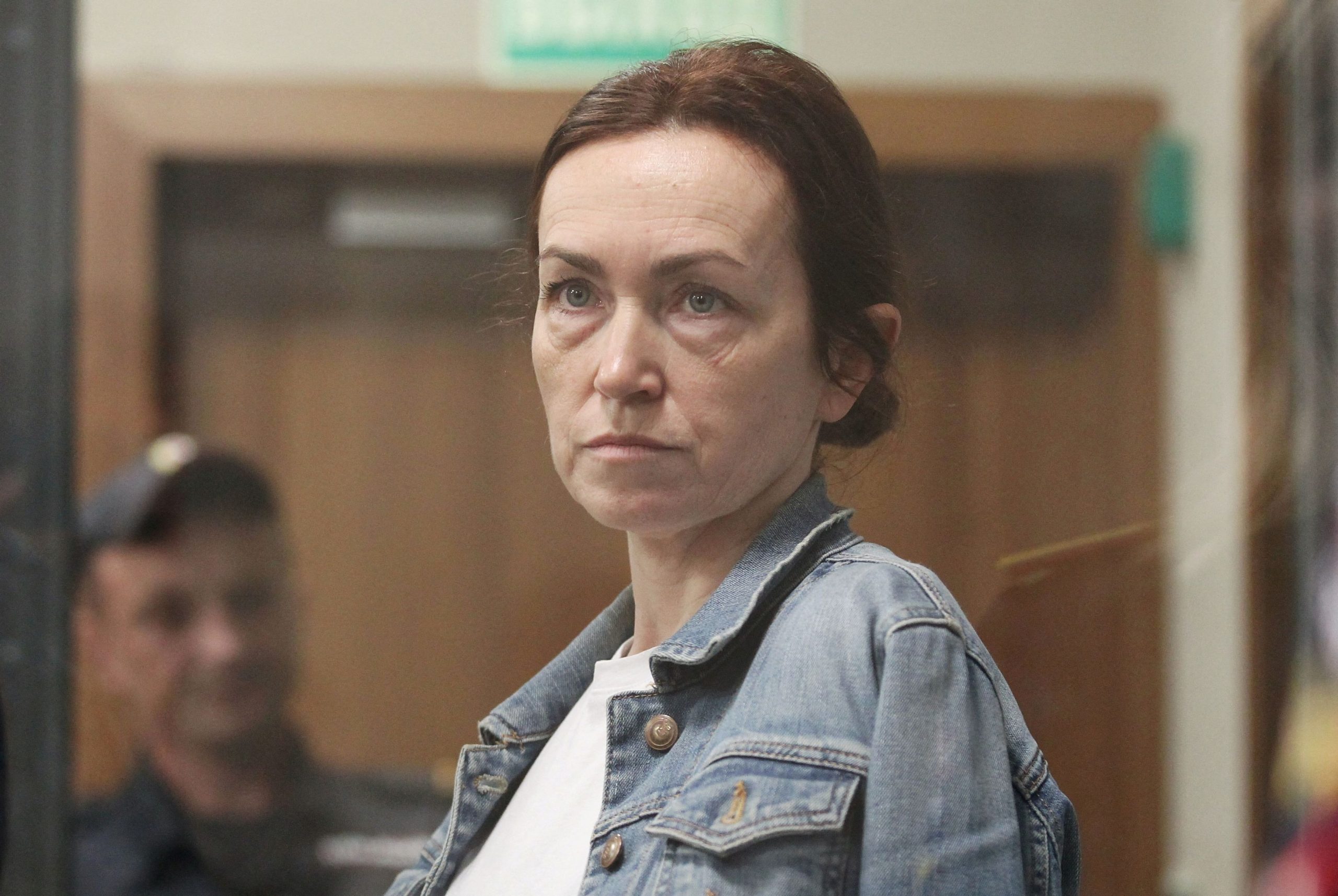A Russian court sentenced Radio Free Europe/Radio Liberty journalist Alsu Kurmasheva , a dual U.S.-Russian citizen, to 6½ years in prison after convicting her in a closed-door trial of disseminating false information about the Russian military.
The court’s verdict, reached Friday following the secret trial but not reported by Russian state media until Monday, came the same day as Wall Street Journal reporter Evan Gershkovich was wrongfully convicted by Russian authorities of spying and sentenced to 16 years in a high-security penal colony.
Gershkovich also was tried in secret, though representatives from the media heard the verdict. No one from the media was present to hear the court’s verdict on Kurmasheva, according to a spokeswoman for the Supreme Court of Tatarstan, where the trial took place.
Russian authorities produced no public evidence to support their allegations against Gershkovich, which he, the Journal and the U.S. government have vehemently and repeatedly denied.
Kurmasheva has denied the charges against her through her lawyer and family. RFE/RL and Kurmasheva’s family say Russian authorities targeted her because of her U.S. citizenship and because she is a journalist. Top U.S. officials have called for Kurmasheva’s release.
“This secret trial and conviction make a mockery of justice—the only just outcome is for Alsu to be immediately released from prison by her Russian captors,” RFE/RL President and Chief Executive Stephen Capus said Monday. “It’s beyond time for this American citizen, our dear colleague, to be reunited with her loving family.”
Kurmasheva’s husband, Pavel Butorin, said in a post on X on Monday that he and his daughters “know Alsu has done nothing wrong. And the world knows it too. We need her home.”
Kremlin spokesman Dmitry Peskov has denied that Russia targets Americans . He said Russia takes appropriate measures against those who violate the law.
The U.S. Embassy in Moscow didn’t immediately respond to a request for comment.
Kurmasheva, an editor for the Prague-based news organization, was trying to leave Russia in June of last year after a two-week trip visiting her ailing mother in Kazan in the country’s southwest, when authorities confiscated her Russian and U.S. passports and accused her of failing to properly register her U.S. citizenship.
Then in October, Kurmasheva was arrested and placed in pretrial detention on a more serious charge—failing to register as a foreign agent—that carries a potential prison sentence of five years. In December, Russian authorities opened a new criminal case against her over a book she helped edit that criticizes the invasion of Ukraine. They later charged her with spreading false information about Russia’s military, a crime with a sentence of up to 15 years.
The 47-year-old’s family and employer say Moscow is particularly hostile to RFE/RL, including the Tatar-Bashkir minority language service, where Kurmasheva is an editor based in Prague. The Tatar-Bashkir service was designated as a foreign agent by Russian authorities in 2017, along with seven other RFE/RL news services.
Kurmasheva’s supporters have campaigned for months for the U.S. State Department to designate her as wrongfully detained, which would commit the government to working toward her freedom.
Only two Americans have been designated as wrongfully detained in Russia: Gershkovich and Paul Whelan, a former Marine serving 16 years on espionage charges he, his family and the U.S. say are bogus.
Gershkovich, 32, has been imprisoned since March of last year, when he was detained by the country’s Federal Security Service, or FSB, while on a reporting assignment in Yekaterinburg, around 900 miles east of Moscow. He was accredited as a journalist by Russia’s Foreign Ministry at the time.
U.S. officials say that there are instances when applying the wrongfully detained label could inadvertently hinder the resolution of a case by escalating it. The U.S. has previously brought Americans home who weren’t considered to be wrongfully detained, alongside Americans who were.
Kurmasheva’s family thought they were close to a wrongful-detention designation for her after a White House holiday reception in December, when President Biden said the U.S. government was “fighting every day for the release of Evan and Alsu and Paul.”
In the months since, Kurmasheva’s family has worried that the U.S. will only really be committed to helping her if she is designated. Such an announcement “would mean that the U.S. government has got our back,” Butorin said in an interview with the Journal earlier this year. “That we have government resources behind us, and the U.S. government would actually be vocal about Alsu’s case.”
In recent months, Kurmasheva has said that her health had deteriorated as a result of conditions in detention. She and Butorin have two daughters.
Write to Georgi Kantchev at georgi.kantchev@wsj.com and Louise Radnofsky at louise.radnofsky@wsj.com



